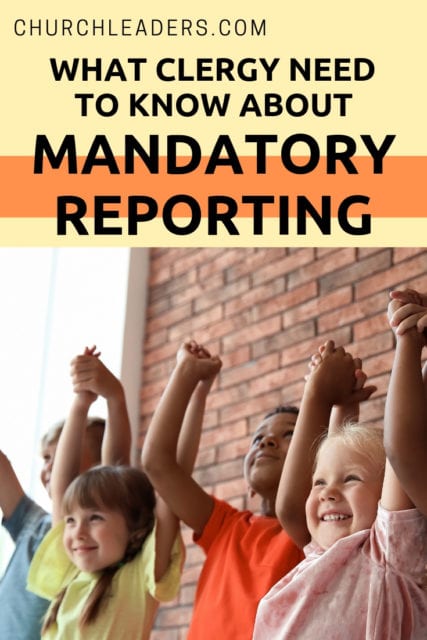Are pastors mandated reporters of crimes such as child abuse? South Dakota, Kansas and Virginia are among the states looking into adding pastors and other church staff to the list of mandatory reporting to report suspected child abuse. Other states are deciding whether to tighten existing “mandatory reporter” laws by removing confidentiality from religious conversations such as confession. The debate comes amid continued efforts to safeguard children from sexual abuse and to expose predators who exploit their role as trusted church leaders.
Mandatory Reporting Laws Vary by State
Although every state requires certain professionals and institutions to report suspected child abuse, the nature of those fields varies. Most commonly, the list of mandated reporters includes health-care providers, teachers and school personnel, day-care workers, and police officers. Some states expand that to include substance-abuse counselors, domestic-violence professionals, clergy members and even film processors. California statutes, for example, identify more than 40 professionals as mandatory reporters.
But are pastors mandated reporters? Currently, clergy are considered mandatory reporters in about half of all states. But even those laws vary because of the unique nature of pastoral care. Some states that include clergy as mandatory reporters exempt pastors from that requirement if abuse is disclosed or discovered during “pastorally privileged conversations.”
Steps for reporting suspected abuse also vary by state. Anyone concerned about a child’s safety or welfare can file a report voluntarily. Some states have even changed the laws to make all adults, regardless of their profession, mandatory reporters.
More States Seek to Add Clergy to the Mandatory Reporting List
Lawmakers in several states have recently taken steps that could impact clergy responsibilities and liabilities. In South Dakota this week, a House committee approved a bill that adds church staff and clergy to the list of mandatory reporters. The bill, HB 1230, now heads for debate on the House floor.
Opponents, including the South Dakota synod of the Evangelical Lutheran Church in America, say the bill’s definition of “church staff” is too broad. Employees such as secretaries and worship leaders shouldn’t be included as mandatory reporters, they say.
Supporters, meanwhile, say the bill will ease the weight on pastors—especially those in assistant roles—and prioritize the well-being of children. HB 1230, says Rep. Scyller Borglum, R-Rapid City, will “alleviate young pastors of the burden of having to decide whose loyalty to pursue” if they discover a superior is behaving illegally. “By passing this bill into law, we will take the burden off young clergy and…say to them, ‘You have to do this. It’s very simple. It’s very straightforward. It can’t offend anybody in your church because frankly, this is the law and we prioritize children over people’s influence and egos.’”
Are pastors mandated reporters? Virginia’s House of Delegates and Senate unanimously passed a bill this week that adds clergy to that state’s list of mandatory reporters. The bill is now in the hands of governor Ralph Northam. The move to add clergy to Virginia’s list was inspired by the recent sexual-abuse conviction of a Manassas youth leader. Some people say his church protected him because he is the senior pastor’s son.
In Kansas last month, State Sen. Tom Holland, D-Baldwin City, introduced a bill making clergy members mandatory reporters. Senate Bill 37 is being called Sheldon’s Law, honoring a boy who was assaulted during a church lock-in.
Are pastors mandated reporters? “Clergy leadership are adults that children must be able to trust to keep them safe,” Holland says. “This bill mandates that they report suspected abuse or neglect to authorities. It is an extra layer of protection for all Kansas children.”
Should Communications With Clergy Be Private?
California lawmakers are currently considering making a key change to the state’s Child Abuse and Neglect Reporting Act. If passed, the amendment would do away with the confession exemption, meaning clergy would need to report abuse suspicions gleaned from conversations that had previously been viewed as private, or privileged.


